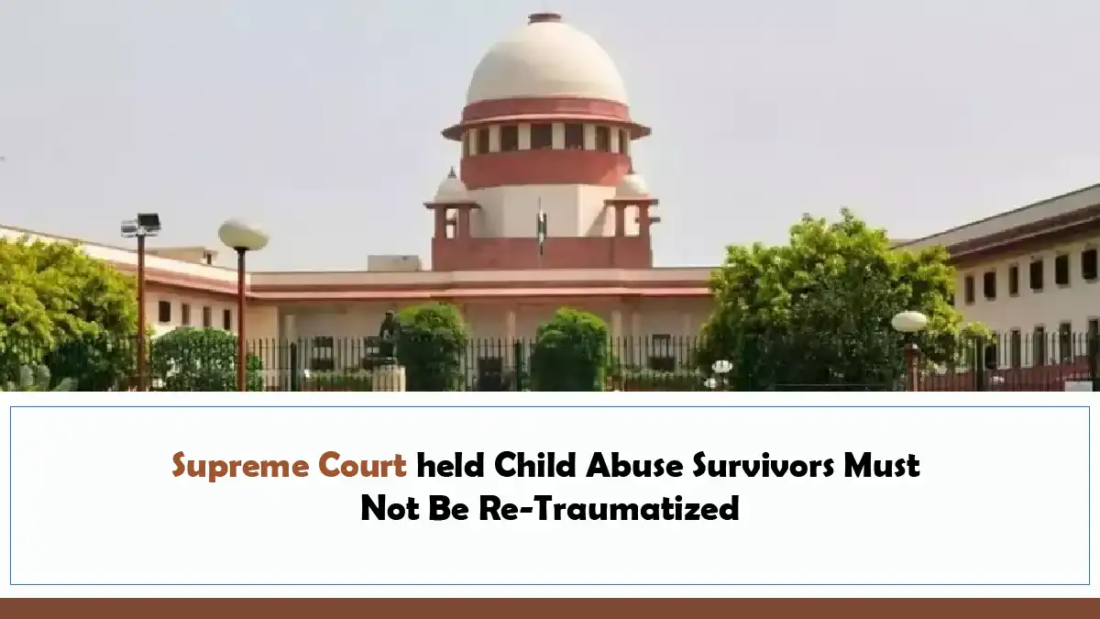Facts of the Case
The appellant, Mr. A, was convicted by the Special POCSO Court, East Sessions Division, Tezu, for the offence of aggravated penetrative sexual assault on his 11-year-old niece (daughter of his sister). The conviction was under Section 6 of the POCSO Act read with Sections 376 and 506 of the IPC, along with Section 12 of the POCSO Act. He was sentenced to 20 years of rigorous imprisonment. His conviction was based on the prosecutrix’s testimony, her statement under Section 164 CrPC, medical evidence confirming recent forcible sexual intercourse, and her birth certificate establishing her age below 12 years at the time of the offence. On appeal, the Gauhati High Court at Itanagar upheld the conviction through a detailed judgment dated 1 July 2024 in Criminal Appeal (J) No. 6 of 2022. Dissatisfied, Sonar approached the Supreme Court seeking recall of the victim for cross-examination.
Contentions of the Petitioner
The petitioner argued that he had been denied effective legal assistance during trial because his defence counsel had failed to cross-examine the prosecutrix. On this basis, he claimed that the proceedings stood vitiated and prayed for a fresh opportunity to test the testimony of the child victim. He also challenged the late filing of the CFSL (Central Forensic Science Laboratory) report, contending that it undermined the fairness of the trial. These submissions were framed to suggest miscarriage of justice and violation of his fundamental right to a fair trial.
Contentions of the Respondent
The State of Arunachal Pradesh opposed the petition, asserting that the conviction was based on overwhelming and consistent evidence, both oral and medical, which left no scope for doubt. The respondent highlighted that the victim’s detailed and coherent testimony under Section 164 CrPC had been corroborated by contemporaneous medical evidence, and her age was conclusively proved through her birth certificate. The State argued that the absence of cross-examination was a matter of trial strategy, not a denial of justice, especially since no objection was raised by the accused during or immediately after the deposition. Regarding the CFSL report, it was submitted that the report did not contradict but in fact supported the prosecution’s case, and hence no prejudice had been caused.
Court’s Observations
The Supreme Court, in a bench comprising Justice Aravind Kumar and Justice N.V. Anjaria, dismissed the petitioner’s plea, holding that the request to recall the victim was a misuse of procedure aimed at reopening a concluded trial. The Court categorically noted that the prosecutrix’s version was consistent and credible, corroborated by medical evidence, and her minority was conclusively established.
On the argument of denial of legal assistance, the Court stated that the defence counsel’s choice not to cross-examine the prosecutrix “cannot by itself vitiate the proceedings, especially when the accused was present and made no protest application either to cross-examine the prosecutrix or immediately on the next date of hearing seeking for recall of the witness.” The Court held that there was no unfairness in the trial process.
Rejecting the plea, the Court observed that “Courts have a duty to ensure that survivors of child abuse are not re-traumatized by the very justice system they turn for protection. Allowing such technical plea being raised in cases of such gravity, especially when guilt has been established after full-fledged trial and confirmed in appeal, risks undermining public confidence in the administration of justice. It sends the wrong message/signal that procedural tactics override substantive findings. That cannot be permitted.”
Further, the Court declared in emphatic terms that “Let it be stated unambiguously: to grant relief in case of this nature after the guilt has been proved and affirmed, would not merely undermine the majesty of the law, it would amount to betrayal of the constitutional promise made to every child in this country. It would be in the considered view of this Court, a judicial insult to the sanctity of womanhood and a blow to every mother who teaches her child to believe in justice.”
The bench also cautioned against procedural harassment that “Once the trial has concluded and the testimony has been recorded, in accordance with law, any attempt to recall the victim for re-examination must be treated with extreme caution. In the absence of compelling legal necessity, it cannot be allowed. Such attempts must be discouraged, wherever necessary it should be nipped at the bud especially when they threaten to re-traumatize the victim.”
Finally, the Court noted with concern that no compensation had been awarded by the lower courts despite the victim’s age and the gravity of the offence.
Court’s Order
The Supreme Court dismissed the appeal, holding that there was no perversity or illegality in the concurrent findings of the Trial Court and the High Court, and hence no interference under Article 136 of the Constitution was warranted. The conviction and sentence of 20 years rigorous imprisonment stood affirmed.
Additionally, exercising its constitutional duty to provide restitution, the Court directed the State of Arunachal Pradesh to pay ₹10,50,000 as compensation to the victim. The amount was ordered to be deposited in a fixed deposit for five years in the victim’s name, with quarterly interest available to her, and the Arunachal Pradesh State Legal Services Authority was tasked with monitoring the process.
In conclusion, the Court stressed that “This Court reiterates that justice must not be limited to conviction, it must, where the law so permits, include restitution. In awarding the aforesaid compensation, we reaffirm the constitutional commitment to protect the rights and dignity of child survivors, and to ensure that the justice delivered is substantive, compassionate and complete.”
Written by Adv. Deeksha Rai
 Cart is empty
Cart is empty 

